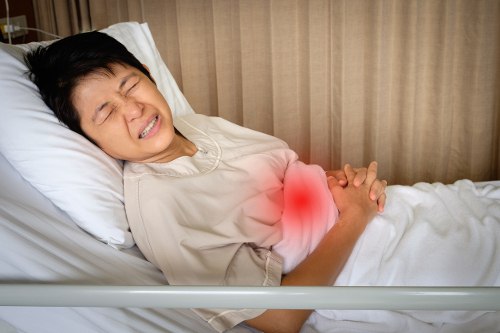 Inflammation of the entire colon can result in painful lesions that may develop into inflamed bowel disease.
Inflammation of the entire colon can result in painful lesions that may develop into inflamed bowel disease.
Pancolitis can turn into cancer of the colon if symptoms are left untreated to expand and worsen.
A person with this condition may be able to live a regular life by following a proper, nutritious pancolitis diet.
What Is Pancolitis?
Pancolitis is one form of the condition known as ulcerative colitis (UC). An inflamed bowel disease, this destructive condition is the inflammation of the lining of the left colon, right colon, traverse colon, and rectum. It is associated with other inflammatory conditions such as rheumatoid arthritis. The disease can lead to sores, ulcers, intense discomfort, and pain.
Pancolitis is sometimes referred to as pan-ulcerative colitis, total colitis, and universal colitis.
Pancolitis Causes
Related factors can cause the inflammation associated with this condition. If it is triggered by hormones or stress, symptoms can arise, but the underlying cause is yet to be pinpointed.
1. Autoimmune Disease
The immune system will attack any force it deems harmful, even if it’s the good digestive bacteria that is present in the colon. This can happen with pancolitis, resulting in swelling.
2. Genetics
Ulcerative colitis can appear in generations of family members. A person’s genetic predisposition may mean a higher risk of having the disease. Pancolitis is seen in higher rates among ethnic and minority groups.
3. Smoking
The sensitive lining of the colon can become inflamed by the chemical toxins in cigarettes. They contain cyanide, nicotine, and formaldehyde, with carbon monoxide in the smoke. The blood vessels of the large intestine will constrict and the oxygen levels are reduced.
4. Environment
Location, location, location is key for many situations, including some health conditions such as pancolitis. There are larger numbers of cases in Northwestern Europe and America than in other geographical locations. Other environmental factors include air pollutants, which can involve particles of soot and aerosol irritating the colon lining.
5. Diet
The inflammation can become worse with the consumption of carbohydrates and bad fats. This may explain why there are lower cases in countries with low-fat, low-carbohydrate diets such as those found in Asia.
6. Medication
Prescribed medication targeting acne may offer side effects that can irritate the digestive tract and cause the colon to swell.
Pancolitis Symptoms
The associated symptoms of pancolitis range from mild to severe, with fluctuating time lapses between episodes.
1. Abdominal pain
The discomfort can quickly turn to severe pain with bowel movements. It can occur in bouts of spasms in the abdomen.
2. Mucosal hemorrhage
With possible blood clots forming in the colon with this condition, lesions can develop. The inflammation can lead the lesions to ulcers.
3. Diarrhea
The inflammation of the colon may produce exudative diarrhea, which contains excessive amounts of blood and pus. These bowel movements are a result of an imbalance of electrolytes and severe dehydration.
4. Fever
A high grade fever may be accompanied by rectal bleeding and anemia.
5. Weight loss
Severe bouts of diarrhea, night sweats, anemia, fatigue, and bleeding can result in weight loss.
6. Fatigue
An overwhelming feeling of fatigue and exhaustion may occur with the presence of several of pancolitis symptoms.
7. Night sweats
The harsh internal environment your digestive tract experiences may produce severe sweating.
Pancolitis Diet
A pancolitis diet may be recommended alongside medical treatment of medication and surgery. This may see a portion of the colon removed to alleviate the symptoms. Surgery is usually a short-term treatment as often times the pancolitis will appear in another area of the colon.
Many of the symptoms of pancolitis have been alleviated or eliminated by changing a few things in the patient’s diet. A low-residue diet is recommended, and can be adjusted to accommodate personal needs. It may be necessary to tweak this low-fat diet to fit the patient’s tolerance and digestive capability. Determine what works for best for you with the help of a food journal. Document what you eat and any symptoms that may occur.
It is important to follow a specific diet tailored to you to alleviate symptoms. Maintain a healthy diet and limit fiber intake to 10 to 15 grams per day. Drink plenty of water throughout the day and eat three to four small meals each day.
What to Eat on Ulcerative Pancolitis Diet
1. Dairy
Up to two cups a day of cottage cheese, pudding, yogurt, or milk.
2. Grains
Pasta, bread, crackers, cereals, and refined white bread with less than ½ gram of fiber.
3. Proteins
Meat, poultry, eggs, fish, and smooth peanut and nut butters.
4. Fruits
Fresh cantaloupe, plums, watermelon, peaches, apricots, melon, ripe bananas, canned fruits, applesauce, and pulp-free juices.
5. Vegetables
Fresh onions, zucchini, cucumbers, lettuce; cooked pumpkin, spinach, carrots, potatoes, green beans, seedless yellow squash, wax beans, and eggplant.
6. Fats and sauces
Margarine, butter, oils, mayonnaise, sauces, dressings, smooth condiments, and whipped cream.
What Not to Eat with Ulcerative Pancolitis
- Deli and processed meat
- Dry fruits
- Berries and figs
- Spicy foods and sauces
- Pickles and relish
- Popcorn
- Nuts and seeds
- Caffeine products and beverages
- Alcohol
Pancolitis can be a life-long disease for millions of sufferers around the world. The inflammation of the entire colon can present with varying symptoms ranging from mild to severe. The more serious symptoms can lead to further complications as well as debilitating results for the patient. Treatments can include changing lifestyle habits and following a low-fat, low-fiber meal plan.
Related Articles:
Colon Cancer and Tree Nuts: How These Snacks Affect Your Survival
What Is a Redundant Colon? Diet and Treatment Tips to Follow
Does a Colon Cleanse Benefit Your Health?
Sources:
“Pancolitis,” Prime Health Channel, March 19, 2012; http://www.primehealthchannel.com/pancolitis.html, last accessed June 13, 2017.
Santos-Longhurst, A., “Ulcerative Colitis: Diet Plan and Guidelines,” Healthline; http://www.healthline.com/health/ulcerative-colitis-take-control/diet-plan-recipes, last accessed June 13, 2017.
